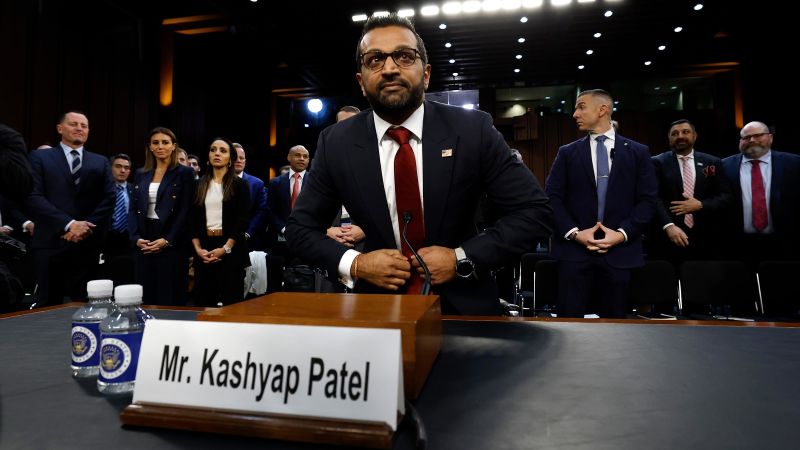Breaking: Trump Ally Kash Patel Secures Senate Confirmation as New FBI Director

In a pivotal moment for the FBI's leadership, the Senate has confirmed Kash Patel as the agency's new director, marking a significant shift in the top law enforcement position. Patel, a well-known ally of former President Donald Trump and a prominent conservative figure, has secured the role after a contentious confirmation process.
The appointment signals a potentially dramatic change in the agency's direction, as Patel brings a reputation for unwavering loyalty to Trump and a history of challenging established institutional norms. His confirmation reflects the ongoing political tensions surrounding the FBI and its leadership, raising questions about the potential impact on the agency's independence and operational approach.
Patel's background as a vocal Trump supporter and his previous roles in conservative political circles have made his nomination a focal point of intense debate among senators and political observers. The vote underscores the deep political divisions that continue to shape key government appointments in the current political landscape.

